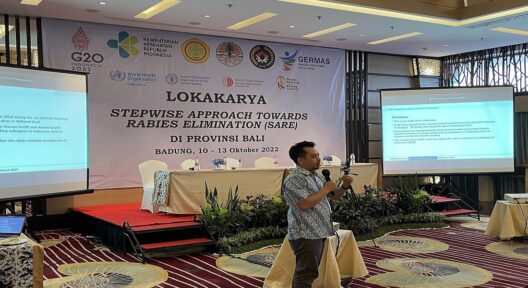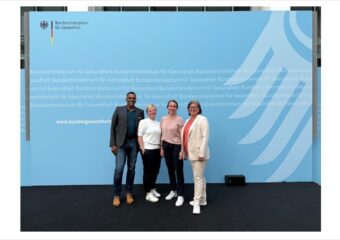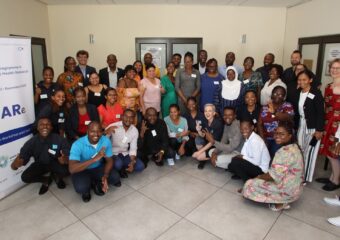Building Capacity for Future NBW-R
The Stepwise Approach towards Rabies Elimination (SARE) is an important tool to guide countries in control of rabies that has been embedded in the NBW-R concept developed under the “IHR-PVS Toolbox” project. A SARE facilitator training program was piloted in Indonesia´s Bali province, enabling the new facilitators to lead SARE sessions in preparation for future NBW-R workshops.

The Stepwise Approach towards Rabies Elimination
The Stepwise Approach towards Rabies Elimination (SARE) is a practical planning, monitoring and evaluation tool to guide, develop and refine rabies control programs. To do this, the SARE relies on a two-step process:
- Users assess their own rabies control and elimination programs’ strengths and weaknesses
- The SARE then assists the user with the development of a customized rabies work plan.
To date, the SARE tool has been used to in more than 35 rabies-endemic countries for either national or sub-national assessments.
Linkage between the SARE and the NBW-R
The SARE-derived work plan is not only an actionable document for use by governments, but also plays a central role in the National Bridging Workshop for Rabies (NBW-R) where the work plan is a key element in one of the sessions and the workshop’s outputs in general. The NBW-R itself is the workshop format that has been developed by FLI and WHO, in collaboration with WOAH, FAO, and GARC as a key output of the GHPP “IHR-PVS Toolbox” project that has been running since late 2019. As such, undertaking a comprehensive SARE assessment or re-assessment workshop is a mandatory prerequisite for countries or regions who wish to undertake a NBW-R workshop.
Because of this, it is imperative that countries can implement SARE workshops when needed.
The SARE workshops, however, require trained and skilled facilitators, which limits its routine implementation. To address this shortcoming, the Friedrich-Loeffler-Institut (FLI) and Global Alliance for Rabies Control (GARC) teamed up to create and pilot a SARE facilitator training program–enabling future facilitators to lead SARE sessions in preparation for NBW-R workshops.
The SARE facilitator training
Firstly, a detailed SARE facilitator manual was developed, which provides a detailed overview of all the elements and actions that form part of an in-country SARE workshop. The facilitators manual also provides links to an online SARE toolbox that contains tools and resources to support the facilitator during a SARE workshop. After the development of the SARE facilitator manual, a two-part SARE facilitator training program was developed with both online training and hands-on training components.
The online SARE facilitator training component, led by an experienced SARE workshop facilitator, focusses on leading participants through the facilitator manual – and its accompanying resource(s)/document(s) in the online SARE toolbox – while addressing key questions from the group. The hands-on SARE facilitator training component, also led by an experienced SARE workshop facilitator, takes place during an in-country workshop. This component affords new facilitators with an opportunity to observe a facilitator in action before leading workshop sessions under supervision.
Undertaking a SARE workshop in Indonesia’s Bali province
Since the emergence of rabies on Indonesia’s Bali province in 2008, the Indonesian Government and other stakeholders have implemented disease control and prevention activities with the aim of re-securing Bali’s freedom from dog-mediated rabies. One such planned activity – aimed at enhancing the intersectoral collaboration and cooperation – is the National Bridging Workshop for Rabies (NBW-R). As the provincial government had not undertaken a SARE workshop previously, the implementation of the NBW-R required a comprehensive SARE workshop to first be completed.
The SARE workshop in Bali, attended by the provincial governmental stakeholders – and six future workshop facilitators that has taken part in the online training – took place in October 2022. During the workshop, the participants undertook the SARE assessment to determine the current rabies situation through a comprehensive landscape analysis, after which the work plan was developed and customized.
In addition, the six new workshop facilitators from the regional WHO and FAO offices were trained on the facilitation of in-country SARE workshops by leading various workshop sessions under the supervision of an experienced workshop facilitator. These newly trained facilitators will be able to support future SARE workshops for Indonesia’s other provinces and beyond. In turn, this will enable future countries / regions to be eligible for NBW-R workshops and the benefits thereof.
Way forward
In light of the successful implementation of the SARE facilitator training program in Bali, and the benefits thereof in terms of both future SARE and NBW-R workshops, FLI and GARC will endeavor to repeat these workshops in additional localities around the world to ensure countries / regions can receive the programmatic support that they need.
Date: November 2022



